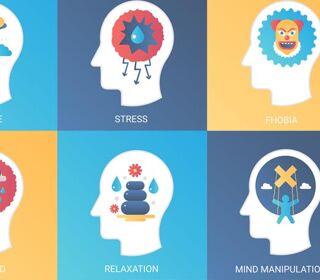
Blog

Psychology is one of the most popular subjects at university level, and covers a broad range of specialisms, which often crossover with other subjects. We want to help you navigate your options, so here is a quick overview of the psychology courses we offer at BCU.
Understanding how and why people act in certain ways can have endless applications in the worlds of business, marketing, law, health, fashion and beyond. That is why you see Psychology paired up with so many other subject areas at degree level.
At Birmingham City University, we offer three Psychology degrees that allow you to specialise in areas that interest you. In this article, we’ll explore these options, letting you know what sets them apart so that you can find the one that is right for you.
BSc (Hons) Psychology
Key topics
- Research Methods
- Psychopathology
- Neuropsychology
On our standard Psychology degree, you will explore scientific approaches to understanding the mind, brain and behaviour.
You’ll demonstrate knowledge and understanding of the historical and scientific underpinnings of the discipline of Psychology and how these underpinnings change across the core curriculum topic areas. Explore how the six core areas in Psychology can explain factors that influence the mind, brain, behaviour and experience, and the complex interactions between these.
Over the course of your degree, there will be increased emphasis on practical and transferable skills. You will collect, comprehend and examine data effectively, becoming increasingly computer literate in a number of statistical packages and experimental equipment. As you progress, you will also learn more advanced areas of qualitative and quantitative psychology. You will then be able to apply these skills in your final year as part of your Integrative Psychology Project, in which you will address a novel problem in a research area of your choice.
BSc (Hons)/MSci Psychology and Counselling
Key modules
- Self and Relationship
- Counselling Skills
- Counselling Theories and Concepts
The BSc (Hons) Psychology and Counselling degree will be of particular interest if you are thinking about a career as a counselling psychologist, psychotherapist or a counsellor.
The course has been carefully developed to enable graduates to gain the required knowledge base, practical skill and emotional awareness and maturity required for these, normally postgraduate, professions. Whether or not further study is for you, an in-depth exploration of – among other things - human development, mental health and distress, as well as practical listening and relationship building skills, will prepare graduates for a range of people-focussed roles with adults, young people and children.
This course integrates traditional psychology teaching with the theory and practice of counselling and psychotherapy into a unified course which enables an early focus on applied practice without any loss of the rigour of a pure psychology degree.
The course offers the opportunity to progress on to an MSci in Psychology and Counselling. Successful completion of the MSci will enable you to apply for individual registration with the British Association for Counselling and Psychotherapy (BACP).
BSc (Hons) Psychology with Criminology
Key modules
- The Criminal Justice System
- Psychology of Individual Differences and Personality
- Applied Social Psychology
Our innovative Psychology with Criminology course will give you a deep understanding of how the core and specialised areas in psychology and criminology contribute to our understanding of contemporary issues.
You will apply scientific reasoning and evaluate patterns of behaviour, gaining key transferable skills in communication, teamwork and problem-solving. Additionally, you will learn how psychology can be applied to explain certain aspects of crime and criminal behaviour.
Over the three years, your Psychology modules will help you gain a deep understanding of the mind, human behaviour and the reasons why individuals carry out certain actions, while your Criminology modules will help you understand the relationship between the different aspects of crime and victimisation.